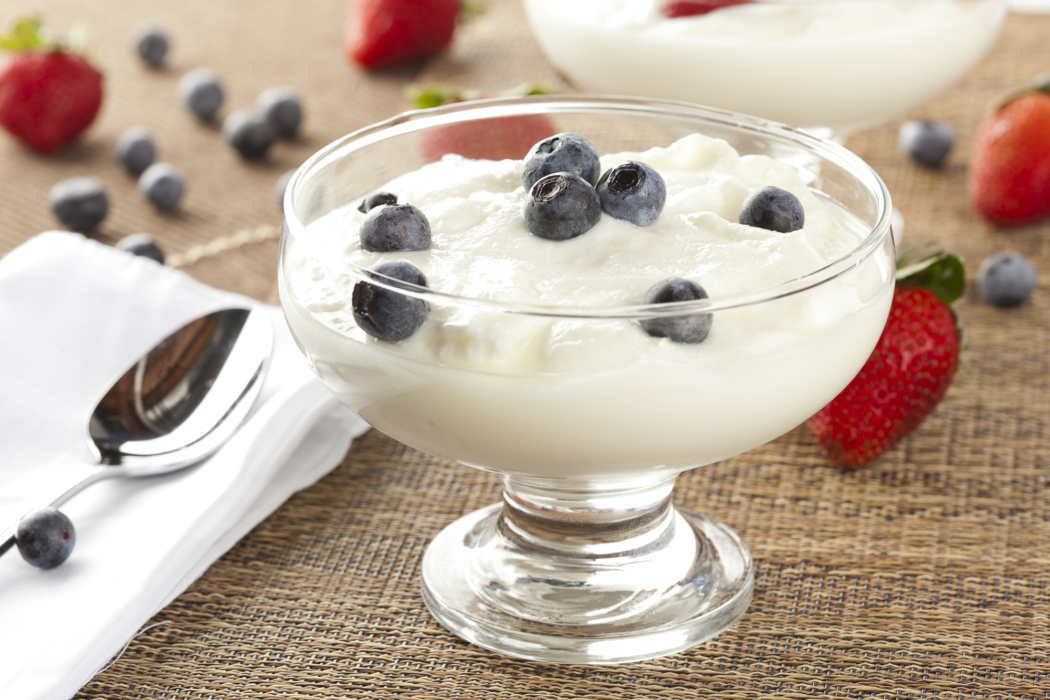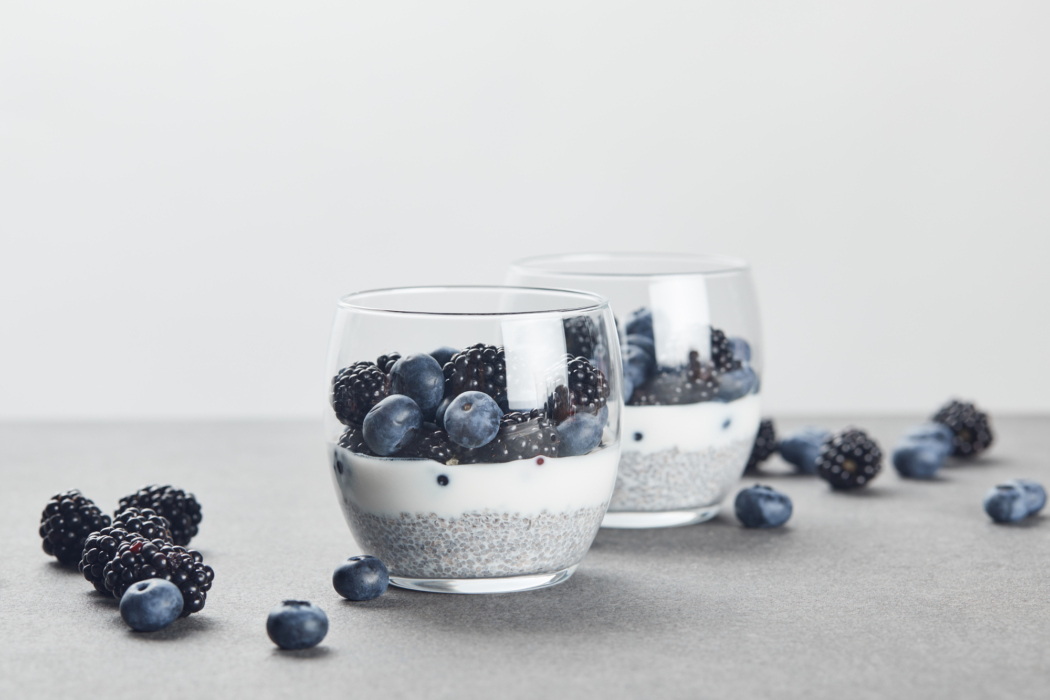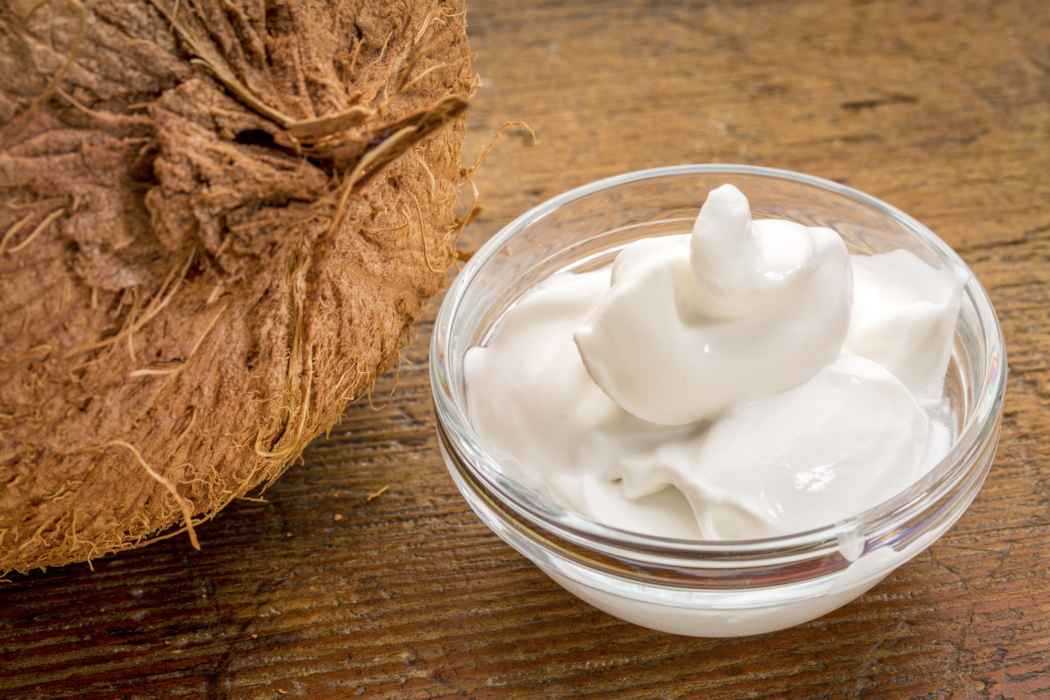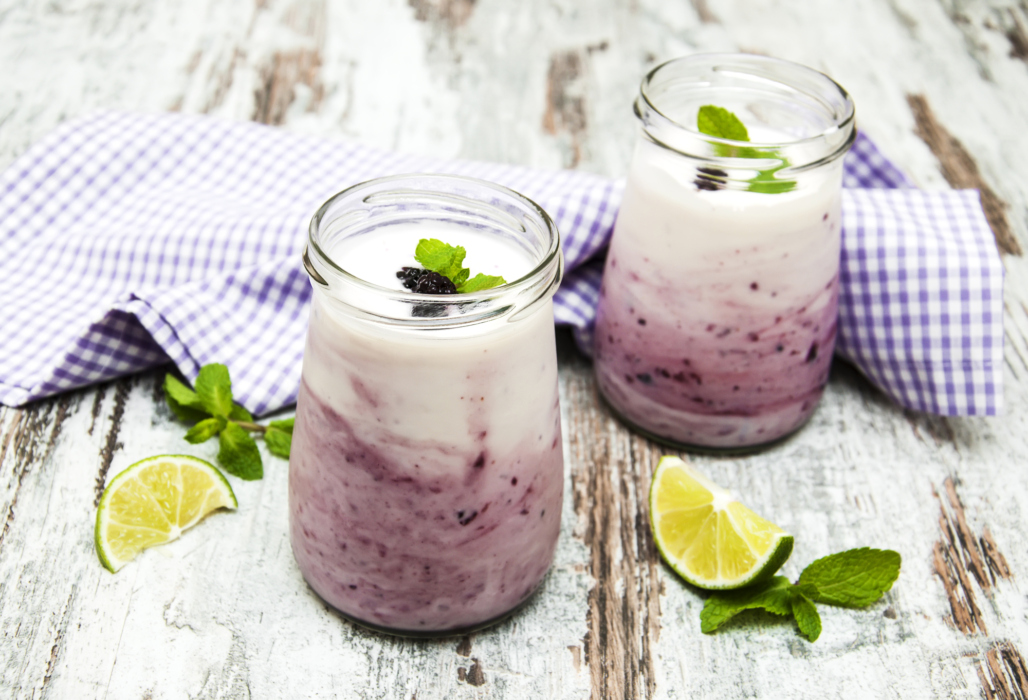A keto diet is an excellent tool for losing weight and solving many health problems. You probably already know what foods you can eat on keto to get no more than 20 grams of net carbs per day. But what about yogurt? Is yogurt keto? What kind of yogurt can you eat while on a keto diet?
You can eat low-carb, high-fat yogurt while on a keto diet. Make sure it doesn’t contain added carbs in the form of fruits, syrups, cereals, chocolate, caramel, and other additives that can break your ketosis. Your perfect keto yogurt should be high in fat and low in carbs.

It would seem that the answer is simple, but it has many details that you need to know. If you don’t have lactose intolerance, then heavy cream or fatty sour cream, full-fat cheese, and full-fat yogurt can be part of your ketogenic diet. However, be aware that not all types of dairy foods are keto-friendly.
What are the benefits of yogurt for your health? What amount and what types of yogurt can you eat while on a keto diet? How to choose the right keto yogurt? You can find all the answers to these questions in our article! Let’s dive in!
Need Keto Motivation? The Best Tips for Your Keto Lifestyle
Dairy Foods on Keto Diet
Dairy products are controversial in the keto community and are the most doubtful low-carb food. Often people use the keto diet to combat chronic inflammation and other diseases it can cause. And dairy foods are known for their ability to provoke chronic inflammation. For this reason, many people exclude them from the keto diet in order to get the best health-related results. Also, many people have lactose intolerance, which can be obvious or hidden.
In addition, dairy products can retain fluid, leading to swelling and weight gain on keto. If you’re on a strict keto diet and aren’t losing weight, you might want to consider whether you should eat dairy or cut it out entirely.
If your body is lactose tolerant and dairy foods aren’t hurting you, you can eat certain dairy products on a keto diet. However, not all dairy foods are suitable for the ketosis state due to the content of lactic acid and milk sugar – lactose. Generally, dairy products come in two varieties – high-lactose dairy foods and low-lactose dairy foods.
The fact is that during metabolism, lactose turns into glucose and raises the level of sugar in your blood. One example of a high-lactose food is cow’s milk, which you should avoid in any quantity while on a keto diet. Heavy cream is a high-fat, low-carb dairy product that you can consume in small amounts. And what about yogurt? Can you eat yogurt on keto?

Is Yogurt Keto?
If you ask yourself, “can I eat yogurt on keto? is Greek yogurt keto?” then the answer may be ambiguous. It actually depends on the type of yogurt and its nutrient content. You can see different words on the packaging of dairy products: low fat, low sugar, zero sugar, and high protein. It may seem like an excellent option for people who follow the keto diet and lead a healthy lifestyle. But there is a problem – almost all supermarket yogurts contain additives that are strictly prohibited on a keto diet. In addition, low-fat foods are also not suitable for a ketogenic diet.
Store-bought yogurts contain sugar syrup, dangerous artificial sweeteners, flavorings, fruit syrups, cornstarch, etc. Always carefully read the ingredients on the labels [1] of the dairy products you buy. The “most natural” yogurt may have sugar or fructose mixed in. Of course, you cannot eat yogurt that contains added sugars, sweeteners, fruit additives, chocolate, honey, cereals, etc., which can cause an increase in blood sugar levels.
The only lactose yogurt option you can have on a keto diet is pure Greek yogurt. What’s more, you can’t eat any Greek yogurt, as it must be keto-nutrient in order to keep you in ketosis. Often you will find a “diet” low-fat Greek yogurt option, and this is what you should avoid. Opt for a high-fat, low-carb option, just like real yogurt should be.
You can also eat lactose-free plant-based yogurt [2] made from almond or coconut milk. These options can be easily made at home using coconut cream or almond milk, which are allowed on a ketogenic diet.
How to choose yogurt on keto? First of all, you should read the labels carefully. A low-carb keto yogurt, be it Greek yogurt or a plant-based option, should contain no more than 4 grams of carbs per 100 grams. This is the natural carbohydrate content of yogurt, which contains no added sugars.

Benefits of Yogurt on Keto
So, if you have no problems with yogurt on keto, you should add it to your diet to get all the benefits. Here’s the list of the most valuable yogurt health benefits.
Maintaining Healthy Bone Tissue
Yogurt is rich in calcium (an important mineral that regulates bone metabolism) and protein (a structural component of all tissues in your body). Eating enough yogurt during a keto diet positively affects bone health and reduces the risk of osteoporosis and other degenerative skeletal pathologies. Calcium is also an essential macronutrient for muscle contraction and nerve impulse transmission.
Regular consumption of yogurt increases muscle tone and improves microcirculation in them [3]. In addition, it helps maintain a stable load on the ligaments, muscles, and bone tissues.
8 Amazing Ice Cream Recipes for the Keto Diet
Reduced Appetite and Healthy Weight Loss
Full-fat yogurt contains a significant amount of proteins and healthy fats, which increase the feeling of satiety. As a result, within a few hours of eating yogurt on a keto diet, you experience a long feeling of fullness. In addition, Greek yogurt can be an ingredient in delicious keto desserts that will help you curb your sugar cravings.
One study has found that high-protein diets lead to weight loss and reduced body fat (by recycling fat cells and reducing food cravings). For example, people who use yogurt in their daily diet consume 10-15% fewer calories.
According to American experts, increased protein intake significantly speeds up metabolism. As a result, organs and tissues receive more nutrients. In addition, all nutrients are consumed correctly and not deposited as fat.
Improving Gut Health and Microbiome
Like regular yogurt, Greek yogurt is a source of probiotics, which means it contains beneficial bacteria. Probiotics support gut health during a keto diet. They contribute to the healthy digestion of food and reduce the number of pathogenic bacteria [4]. Improving the state of the microbiome reduces the likelihood of digestive upset (abdominal pain, increased gas formation, stool disorders such as diarrhea or constipation, etc.).
Probiotics not only improve digestion but also have many other beneficial properties. They also normalize the functioning of the immune system and increase the body’s resistance to various infectious agents. As a result, people who regularly consume Greek yogurt and other high-fat dairy products are less likely to suffer from disorders [5] such as pneumonia, Crohn’s disease, ulcerative colitis, gastritis, and gastric and duodenal ulcers.
According to scientific data, probiotics ease some gastrointestinal diseases (for example, irritable bowel syndrome) and reduce the severity of digestive disorders [6]. In addition, live bacteria increase lactose tolerance.

Maintaining Mental Health
Many scientific studies show that eating yogurt enriched with probiotics and animal proteins also benefits mental health [7].
Studies show that taking high-protein, high-fat yogurt helps in reducing anxiety and stress and increases tolerance for mental stress. In addition, separate studies note that Greek yogurt can increase mood and motivation, which is extremely important in the presence of depressive disorders.
Gaining and Maintaining Muscle Mass
Any food rich in proteins and healthy fats can maintain not only the health of all tissues in the body but also accelerate the growth of muscle mass. Low calorie, low carb, and high protein make it perfect for weight loss and maintaining muscle mass while on a keto diet. Also, yogurt is useful for various metabolic disorders, including diabetes (maintains a stable blood sugar level) and vascular and heart diseases associated with excess weight.
Scientific experiments show that a diet high in protein and healthy fats, combined with exercise, leads to faster muscle gain than a diet with normal or low protein components.
Is Milk Keto? The Complete Guide to Keto-Friendly Options
Reducing the Risk of Developing Diabetes and Cardiovascular Diseases
The active ingredients of Greek yogurt contribute to normalizing the glycemic state (provided that the yogurt does not contain additional carbs). In addition, it slows down the development of diabetes mellitus due to blocking the main mechanisms for the formation of this disease.
American studies have found that eating yogurt significantly reduces the risk of type II diabetes. It happens by increasing the sensitivity of insulin receptors and stimulating the secretion of several hormonal substances.
Some studies show that full-fat dairy products with probiotics help lower blood pressure in people with symptomatic hypertension [8]. Other studies note that yogurt can normalize the lipid profile [9] and prevent the appearance and growth of cholesterol plaques on the walls of blood vessels.

Keto Yogurt Recipes
And while you can’t eat yogurt with a variety of carbohydrates on a keto diet, you still have many delicious options for eating plain yogurt or any plant-based variety. Of course, you can get a lot of keto-friendly options for plain Greek yogurt at any store – you just have to pay attention to the number of carbs and fats.
However, you can cook it yourself, because it is not as difficult as it seems. I will tell you a few keto recipes to enjoy delicious homemade yogurt while on a low carb diet.
Full-fat Dairy Keto Yogurt
Unfortunately, store-bought yogurt is often too low in healthy fats, even if it’s a low-carb option. Most often, you can find reduced-fat or even completely fat-free dairy products. For this reason, you can try making keto yogurt yourself.
For example, you can take 1 tablespoon of heavy sour cream mixed with 1 cup of warmed heavy cream. Add a special culture starter or probiotic powder to it and leave it in a warm place overnight, covered with a lid. There are many recipes for homemade yogurt, and you can choose any you like. The most important thing is to watch the composition – I do not recommend you use milk. Although the bacteria digest lactose, reducing the number of carbs, you will get yogurt with fewer carbs using heavy cream.
You can also make cottage cheese yogurt. To do this, you need to beat the cottage cheese and heavy cream until a gentle, homogeneous consistency is obtained. You can also use goat and sheep milk yogurt for the base. You can add a little melted coconut oil to increase the fat content.
It is best to eat this yogurt with any keto-friendly berries, chia seeds, nuts, etc. I also love adding a pinch of salt, pickles, garlic, and various herbs for a hearty snack or a savory meat sauce.

Keto Granola with Yogurt
This option is almost no different from the classic granola that you used to eat before the low-carb diet. Yogurt combination with nuts and berries will give you strength and energy for the whole day because such a dessert contains all the necessary nutrients and vitamins. One glass of keto granola contains about 5-6 net carbohydrates, depending on the number of ingredients you use. Besides, you can freeze it and get tasty keto ice cream.
Ingredients:
- Full fat yogurt;
- A mixture of nuts: pecans, hazelnuts, macadamia, almonds;
- Berries (raspberries, cranberries, strawberries, blueberries, sea buckthorn);
- Ground cinnamon or vanilla extract to taste;
- Stevia to taste.
Preparation:
Mash the berries with a fork or blend with a hand blender if you want a smooth consistency. Chop the nuts with a rolling pin or finely dice if you are soaking them overnight.
Add stevia, cinnamon, or vanilla extract to yogurt to taste and mix thoroughly. Blend yogurt, nuts, and crushed berries, or layer them in a glass without mixing. Garnish your keto granola with whole berries and nuts.
10 Tasty Breakfast Smoothies for Flat Belly
Coconut Keto Yogurt
If you are lactose intolerant, you can make great coconut yogurt with the same benefits as lactose yogurt. The recipes are similar to regular keto-friendly yogurt, but the plant-based option requires an extra setting agent because bacteria do not digest lactose. You can use either gelatin or agar-agar if you want to make keto vegan yogurt.
Use only a bit of setting agent so you don’t turn your yogurt into coconut jelly. If your yogurt is too thick, you can use it in a salad or dressing. Also, when making low carb yogurt, it is important not to heat it above 110 F so that the beneficial bacteria do not die.
Coconut Keto Yogurt with Gelatin Powder
In order to make keto yogurt, you will need a kitchen thermometer. You can also use a yogurt maker or make yogurt without one. Try this recipe if you want a smooth, low-carb yogurt with great nutrient proportions.
Ingredients:
- 1 liter of coconut milk;
- 100 ml filtered boiled water;
- 7 grams of gelatin;
- 1 tbsp. of dairy-free live cultures starter (or a couple of probiotic capsules)
Preparation:
Pour the gelatin into cold water, stir the mixture, and heat it until all the gelatin has dissolved. Next, heat the coconut milk in a saucepan to 160-170°F and add the dissolved gelatin. Stir the resulting mixture and let it cool to 100-110°F.
Pour 200 ml of coconut milk into a separate bowl. Add the starter or probiotic and mix thoroughly until the blend is smooth. Next, mix the coconut milk mixture with the rest of the milk and blend the resulting combination.
You need to cook coconut keto yogurt for 24 hours at no more than 100-110°F. You can do this in the oven or in a yogurt maker. The coconut milk can separate during the fermentation process, and this is normal. After 24 hours, you need to take out the yogurt and stir. Then put it in the refrigerator for another 12 hours to thicken it.

Coconut Keto Vegan Yogurt
This recipe excludes gelatin powder as animal food. Instead, you need to use agar-agar – a vegan setting agent extracted from seaweed. It allows you to use this yogurt on a vegan keto diet and be sure that it tastes just as good.
Ingredients:
- 200 ml of pure water;
- 3 gr of agar-agar;
- a pinch of salt;
- 2 tbsp. of lemon juice;
- 400 ml coconut milk.
Preparation:
Add agar-agar to cold water and stir thoroughly until smooth. Bring this mixture to a boil, stirring constantly. And then boil for about a minute until the agar-agar is completely dissolved.
Add coconut milk, a pinch of salt, and lemon juice to this blend and mix thoroughly. Leave your coconut keto yogurt to set. It takes about 5 hours, but you can speed up the process by placing the yogurt in the refrigerator. As a result, you will get a very delicate jelly, which you need to beat with an immersion blender until smooth.
In the end, you will definitely not get real yogurt. However, this keto yogurt will be very similar to the lactose yogurt you may be used to. Add a few strawberries or blueberries to it, and you will get a delicate keto dessert.

Conclusion
As you can see, the question of dairy food during the keto diet is very controversial. Some people don’t eat it at all, and some occasionally indulge in low-lactose dairy foods. You should avoid dairy products during the keto diet if they prevent you from losing weight or they cause health problems.
High Thermic Effect: Foods to Eat and to Avoid
If your body is good at digesting lactose, you can occasionally eat yogurt while on a keto diet. Your best bet is full-fat Greek yogurt or plant-based alternatives made from coconut and almond milk. You need to read labels carefully and avoid added sugar, fruits, syrups, grains, and other ingredients that can disrupt your ketosis. Instead, add some healthy fats to keto yogurt, like coconut oil or nuts, and some keto-friendly berries. This way, you get a hearty low-carb dessert that will not harm your diet.
Sources:
- Moore JB, Horti A, Fielding BA. Evaluation of the nutrient content of yogurts: a comprehensive survey of yogurt products in the major UK supermarkets. BMJ Open. 2018 Sep 18;8(8):e021387. doi: 10.1136/bmjopen-2017-021387.
- Montemurro M, Pontonio E, Coda R, Rizzello CG. Plant-Based Alternatives to Yogurt: State-of-the-Art and Perspectives of New Biotechnological Challenges. Foods. 2021 Feb 3;10(2):316. doi: 10.3390/foods10020316.
- El-Abbadi NH, Dao MC, Meydani SN. Yogurt: role in healthy and active aging. Am J Clin Nutr. 2014 May;99(5 Suppl):1263S-70S. doi:10.3945/ajcn.113.073957.
- Le Roy CI, Kurilshikov A, Leeming ER, Visconti A, Bowyer RCE, Menni C, Falchi M, Koutnikova H, Veiga P, Zhernakova A, Derrien M, Spector TD. Yoghurt consumption is associated with changes in the composition of the human gut microbiome and metabolome. BMC Microbiol. 2022 Feb 3;22(1):39. doi:10.1186/s12866-021-02364-2.
- Fernandez, M. A., & Marette, A. (2017). Potential Health Benefits of Combining Yogurt and Fruits Based on Their Probiotic and Prebiotic Properties. Advances in nutrition (Bethesda, Md.), 8(1), 155S–164S. https://doi.org/10.3945/an.115.011114
- Lisko, D. J., Johnston, G. P., & Johnston, C. G. (2017). Effects of Dietary Yogurt on the Healthy Human Gastrointestinal (GI) Microbiome. Microorganisms, 5(1), 6. https://doi.org/10.3390/microorganisms5010006
- Savaiano, D. A., & Hutkins, R. W. (2021). Yogurt, cultured fermented milk, and health: a systematic review. Nutrition reviews, 79(5), 599–614. https://doi.org/10.1093/nutrit/nuaa013
- Buendia, J. R., Li, Y., Hu, F. B., Cabral, H. J., Bradlee, M. L., Quatromoni, P. A., Singer, M. R., Curhan, G. C., & Moore, L. L. (2018). Long-term yogurt consumption and risk of incident hypertension in adults. Journal of hypertension, 36(8), 1671–1679. https://doi.org/10.1097/HJH.0000000000001737
- Fernandez, M. A., Panahi, S., Daniel, N., Tremblay, A., & Marette, A. (2017). Yogurt and Cardiometabolic Diseases: A Critical Review of Potential Mechanisms. Advances in nutrition (Bethesda, Md.), 8(6), 812–829. https://doi.org/10.3945/an.116.013946